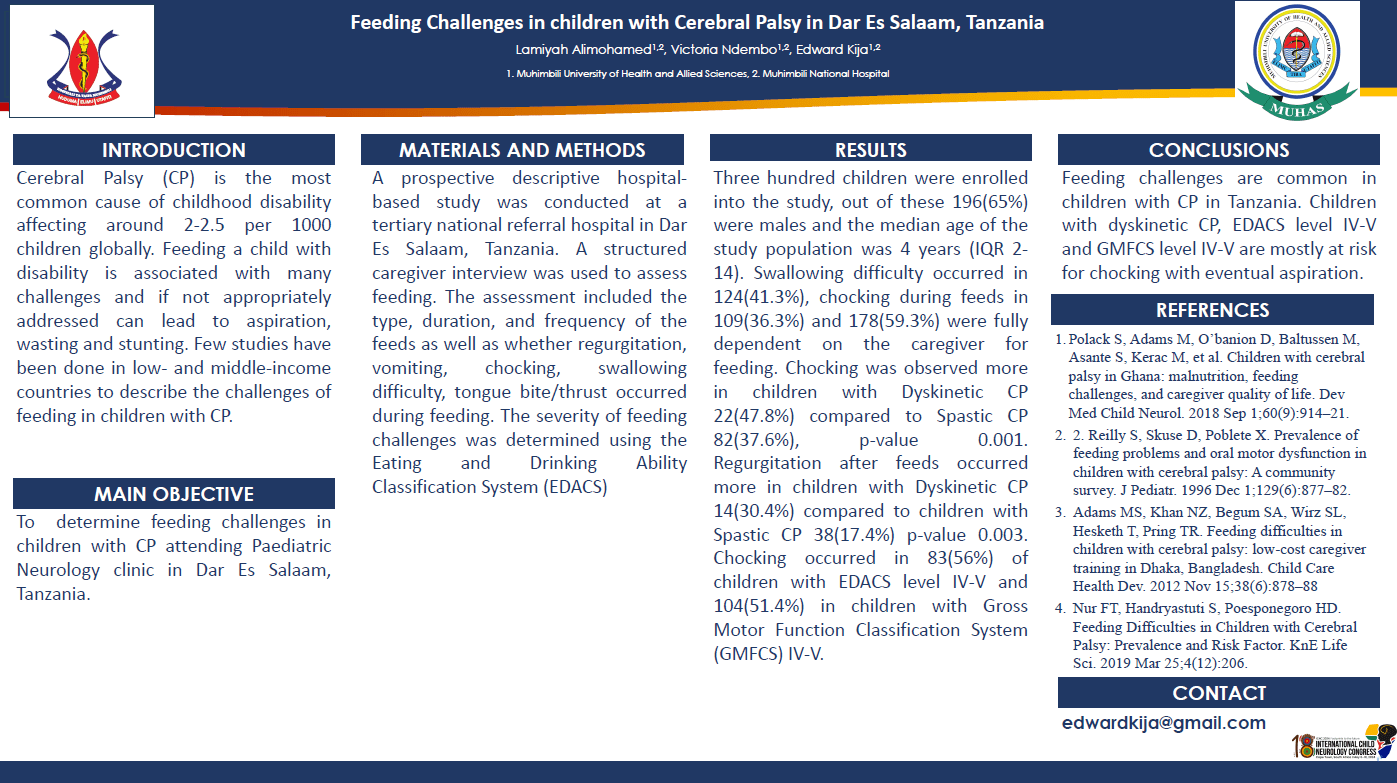Feeding Challenges In Children With Cerebral Palsy In Dar Es Salaam, Tanzania
Background: Cerebral Palsy (CP) is the most common cause of childhood disability affecting around 2-2.5 per 1000 children globally. Feeding a child with disability is associated with many challenges and if not appropriately addressed can lead to wasting, stunting and aspiration.
Methods: A prospective descriptive hospital-based study was conducted at a tertiary national referral hospital in Dar Es Salaam, Tanzania to determine feeding challenges in children with CP attending Paediatric Neurology clinic. A structured caregiver interview was used to assess feeding. The assessment included the type, duration, and frequency of the feeds as well as whether regurgitation, vomiting, chocking, swallowing difficulty, tongue bite/thrust occurred during feeding. The severity of feeding challenges was determined using the Eating and Drinking Ability Classification System (EDACS).
Results: Three-hundred children were enrolled into the study, out of these 196(65%) were males and the median age of the study population was 4 years(IQR 2-14). Swallowing difficulty occurred in 124(41.3%), chocking during feeds in 109(36.3%) and 178(59.3%) were fully dependent on the caregiver for feeding. Chocking was observed more in children with Dyskinetic CP 22(47.8%) compared to Spastic CP 82(37.6%), p-value 0.001. Regurgitation after feeds occurred more in children with Dyskinetic CP 14(30.4%) compared to children with Spastic CP 38(17.4%) p-value 0.003. Chocking occurred in 83(56%) of children with EDACS level IV-V and 104(51.4%) in children with Gross Motor Function Classification System (GMFCS) IV-V.
Conclusion and Recommendations: Feeding challenges are common in children with CP in Tanzania. Feeding assessment should be done routinely in children with CP.
Lamiyah Alimohamed
Muhimbili University Health and Allied Sciences
Tanzania
Victoria Nbembo
Muhimbili National Hospital
Tanzania
Edward Kija
Muhimbili University of Health and Allied Sciences
Tanzania

Edward Kija
Muhimbili University of Health and Allied Sciences
Tanzania